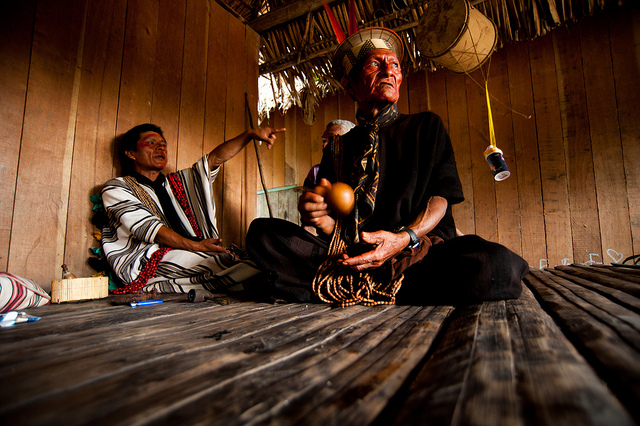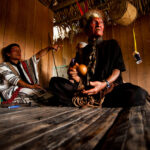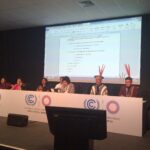5 December, 2014Climate change threatens everything the labour movement stands for: fairness; social justice; decent work, and human rights, reports Brian Kohler, IndustriALL Global Union’s director of sustainability from the United Nations climate change conference, COP-20, in Lima, Peru.
Transformation is coming. The choice we have is whether it will be a violent scramble for resources such as water, energy, and fertile land; desperate last-minute survival measures that completely dismiss human rights and social protection; or an orderly and Just Transition that respects and protects today's workers while creating new, decent work in sustainable industries for tomorrow's.
This is not an abstract future. For some people, it is already happening. On 4 December, the trade union delegation at COP-20 met the widows, children, and friends of four Asháninka leaders from the Peruvian community of Saweto on the Brazilian border: Edwin Chota Valera, Leoncio Quincima Meléndez, Jorge Ríos Pérez and Francisco Pinedo of Alto Tamaya, Ucayali. They were murdered by illegal loggers while trying to protect their ancestral lands from destruction. As climate change creates increasing pressures, such confrontations will increase.
The assassinated men were leaders of their community. Their widows brought us a cry for help. Emotions were raw.
One said, “I have come very far. You do not know me, but you must know that we are harassed. The government does not recognize our land rights and is selling our land to multinationals. But it is our ancestral land, how can they sell it? I am so sad. I am now a widow. People are talking about the climate, but it is the multinationals that are destroying the climate, the land, and the water. We want to protect it.”
Another, the daughter of one of the assassinated men, said, “We are now the only guardians of our forest. We are not being treated with respect. The state is destroying where we live. I want to be respected as a member of the indigenous community. It is important that we have support so that trees are not destroyed, and our men are not killed. We protect the forest not only for us but for all people – it is the source of clean water, clean air. Please support our struggle.”
A third woman told us, “It is thanks to support from my family that we are still here. We are under constant threat from illegal loggers, and drug traffickers. Both Brazil and Peru must protect us. We are human beings, we want justice. I do not want to kill the killers, I want justice. We want to live in peace and harmony.”
One of the men added, “Governments do not understand that borders do not exist. Indigenous peoples do not have borders, whether we are in Peru or Brazil is irrelevant. The environment also does not know borders. There is a struggle here by indigenous peoples for their land. But you need to understand that this is an issue for humanity. The exploiters may win money but soon they will not be able to buy any water, oxygen, or life with it.”




